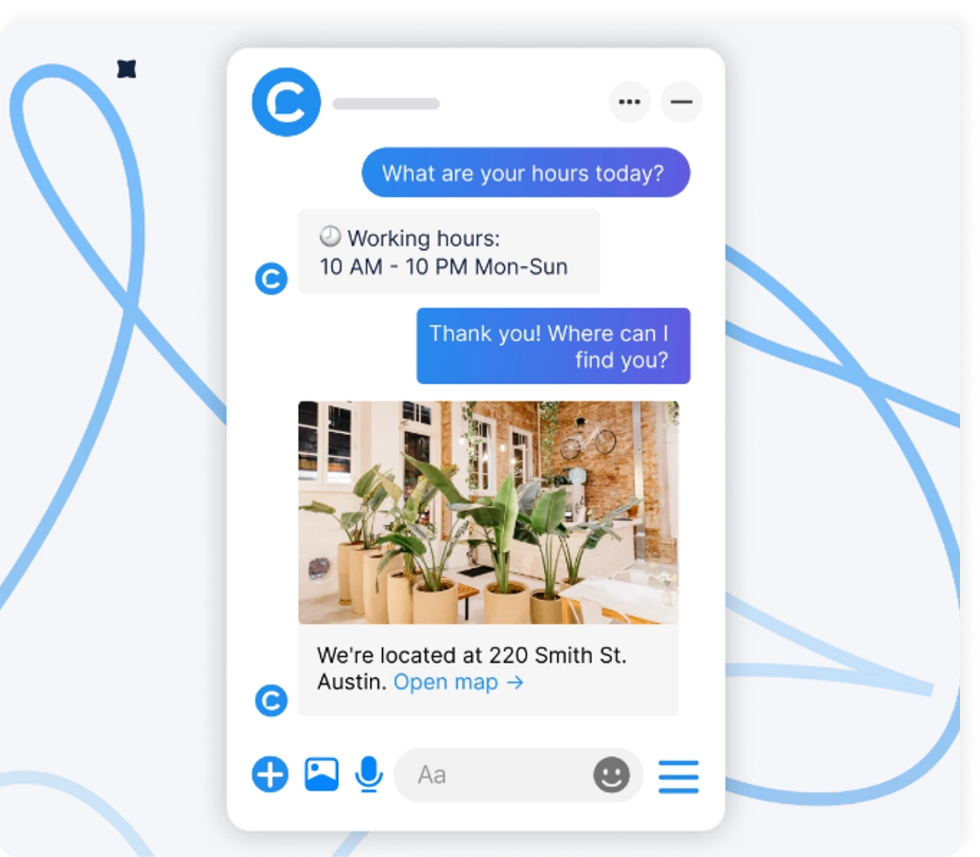
4 most advanced AI systems that can boost your business in 2024
Explore the capabilities of the smartest AI systems and their application scenarios.
Artificial intelligence (AI) is a versatile and powerful tool that can be applied to various business aspects. Companies across industries increasingly employ AI in sales, marketing, customer support, operations, human resources, and accounting. Whether you're looking for an AI system to automate processes or routine tasks, make data-driven decisions through data analysis, or improve communication with customers, you've landed in the perfect spot. Below, you'll learn about the most advanced AI solutions and find practical examples of their applications.
ChatGPT 3 & 4 by OpenAI
GPT-3 and GPT-4 are powerful AI language models created by OpenAI.
GPT-3, launched in 2020, is a large language model with over 175 billion parameters. Trained on a vast amount of text data, it can understand and generate text in different contexts. GPT-3 can be used for various text-related tasks. This may include creating content, building chatbots, translating, answering questions, and even coding.
GPT-4, released in 2023, is a large multimodal model. Multimodal means that it can process both image and text inputs, and produce text outputs. OpenAI's most powerful AI, CPT-4 is even more sophisticated and capable than GPT-3. It provides safer and more meaningful responses, understands longer texts, and is more creative in general.
Here are a few practical ideas on how you can use OpenAI language models for your business:
Lead generation. You can use AI-powered chatbots to generate and qualify leads on different platforms. For smooth lead management, connect the chatbot with your CRM system.
Content creation. OpenAI models can automate content creation. Use them to generate ideas for blog posts or social media content, or to edit and translate texts. With AI, you can deliver more relevant and impactful content across various channels.
Training and onboarding. Chat-based training modules can provide detailed guidelines to facilitate onboarding. Whether it’s new hires or customers starting with the product, the smartest AI tools like GPT language models can streamline the process.
Marketing. There are many ways to use ChatGPT for marketing. You can employ it for simple tasks like generating keyword-rich meta descriptions. It's also capable of complex tasks like data analysis, pattern identification, and extracting insights to support tailored campaigns and data-driven decisions.
Translation. GPT can be used for multilingual support in customer interactions.
Many services already adopted ChatGPT capabilities to enhance their offerings to customers. ChatGPT powers virtual assistants, education platforms, writing and translation tools, and more.
In Chatfuel, for example, ChatGPT can be integrated with chatbots to enhance communication between businesses and customers. Start a free trial to set up your first ChatGPT-powered chatbot.

Watson by IBM
Watson is an advanced AI system developed by IBM. It's especially useful for businesses, researchers, and organizations dealing with complex data. It also employs ML (machine learning) algorithms to enhance its performance over time. It also features data visualization tools that help users explore and analyze data. What's more, Watson can simulate human thought processes and decision-making.
Watson offers the most intelligent AI tools to handle a wide range of business aspects. Here are some examples of how you can apply them:
Personalized shopping experience. Watson Commerce Insights provides information about the business performance and areas for improvement. It can analyze customer behavior and preferences to offer personalized product recommendations. Use it to improve the overall shopping experience for your customers.
Sentiment analysis. Watson's Natural Language Understanding is a text analytics service. It uses advanced language models and technologies to analyze text data and understand its meaning and information. You can use it to assess customer opinions from reviews, social media, and other text sources.
Decision support. Watson can analyze vast amounts of data to suggest personalized options for a request. Use this capability to enable more tailored experiences for your customers.
Customer service. Watson-based intelligent virtual agents can handle customer queries and provide support.
Risk management. Watson analyzes big data, identifies risks, and provides insights for informed decision-making. You can use it to detect anomalies, assess patterns, and improve predictions for proactive risk management.
AlphaGo by Google DeepMind
AlphaGo, developed by Google DeepMind, is an advanced AI software. Originally, it was designed to play the board game Go. AlphaGo uses sophisticated algorithms to analyze the game and make strategic decisions.
As one of the smartest AIs in the world, AlphaGo has shown advanced abilities in making strategic decisions and solving problems. Although it may not have direct uses in many business cases, its algorithms and neural networks can be adjusted for different scenarios. Here are a few examples:
Optimization and planning. AlphaGo's algorithms can be used to optimize logistics, allocate resources, and manage the supply chain.
Cybersecurity. AlphaGo's deep learning capabilities help detect anomalies and security threats.
Language processing. AlphaGo's deep understanding of language patterns can power sentiment analysis, chatbot development, and content recommendation.
Predictive maintenance. Machine learning techniques, inspired by AlphaGo, can predict equipment failures and optimize maintenance schedules. This reduces downtime and extends machinery lifespan for businesses.
Bard by Google
Bard is an AI chatbot tool developed by Google. It can summarize information from multiple sources to make finding relevant information easier.
You can use Bard’s capabilities for various purposes:
Customer data processing. Bard can analyze customer data to identify patterns, behaviors, preferences, and trends. You can use it to create targeted marketing strategies for different customer segments.
Data analysis and forecasting. Bard features predictive analytics capabilities. It means it can study data, forecast market demand for products, and anticipate customer behavior.
Research assistance. Bard simplifies research by summarizing search results and providing source links. It improves efficiency in analyzing market trends, conducting competitive research, and assessing risks.
What's most interesting about Bard is that it was recently upgraded to Gemini. Originally based on LaMDA, Google's family of conversational large language models, Bard is now powered by Gemini, an AI system that was built from the ground up using Google's advanced AI stack.
Gemini is a versatile and multimodal AI model that goes beyond the limitations of traditional AI models that only work with text. It can understand and respond to various types of content such as text, images, music, code, and movies. The Gemini AI system comes in three sizes to meet different needs:
Gemini Ultra for complex cloud computing tasks
Gemini Pro provides a combination of power and portability
Gemini Nano is the smallest version that runs efficiently on smartphones
Currently, only the Pro and Nano versions are publicly available. As mentioned earlier, Gemini Pro is already functional in Bard, so you can be among the first to try it out and take advantage of its capabilities.
Wrap-up
If you are wondering what is the most advanced AI, the answer will depend on your goal. For some purposes, ChatGPT may be your tool of choice. In other scenarios, you may benefit more from Watson or AlphaGo. The key to selecting the right AI tool is to first clearly define goals and needs.
